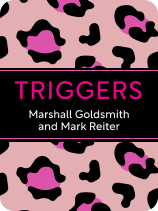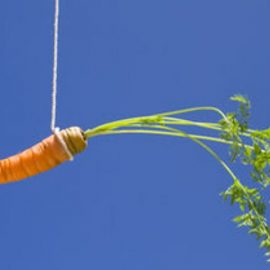

This article is an excerpt from the Shortform book guide to "Triggers" by Marshall Goldsmith and Mark Reiter. Shortform has the world's best summaries and analyses of books you should be reading.
Like this article? Sign up for a free trial here.
Why do people fail to achieve the goals they’ve set for themselves? What are some of the most common obstacles to achieving goals?
Achieving any goal requires consistently showing up for it in your actions, which requires you to exercise discipline and self-control. But your best efforts can easily be derailed by “triggers”—stimuli or situations that throw you off track.
Here’s a look at some of the primary reasons why we succumb to the temptation of triggers, even when we know better.
1. Not Doing What We’ve Planned to Do
No matter how realistic we think we’re being, we’re often overambitious when setting goals. As a result, we make plans that our environment—or our response to it—quickly derails. And no matter how often we’ve seen it happen, we don’t see it coming. For example, you might resolve to stay calmer with your children as you wake up in a quiet house but find yourself yelling when the morning chaos reaches a fever pitch.
Goldsmith and Reiter contend that this happens because each of us is part planner and part doer. The planner decides to change our behavior. But the doer has to enact that change. Often, the connection between the two breaks down, and we make plans that completely discount how we’ve behaved in the past, like putting a task on our to-do list and thinking we’ll get it done even though it’s been on every to-do list we’ve made for the last week.
(Shortform note: We encounter the disconnect between “doer” and “planner” because we tend to think in two different ways. Psychologist Daniel Kahneman calls these “system 1” and “system 2” in Thinking Fast and Slow. System 1 is fast and intuitive, and it tends to make decisions that we perceive as automatic or effortless. System 2 is slow and effortful, and it yields decisions that draw on logic and calculation.)
2. Reacting Negatively When We Could React Positively
Most of us tend to react in negative and unproductive ways to unexpected events, another reason that triggers throw us off track. It feels easy and natural to respond this way when you encounter an unexpected provocation. It feels more challenging to take actions that make a positive and productive contribution to the situation.
This tendency may play a role in the behaviors that you’d like to change in your relationships, where you’d probably like to be a more positive person. For example, when a colleague annoys you, your partner asks you the same question for the 20th time, or your neighbor makes an obnoxious demand, making a cutting remark feels easier (and more rewarding) than being patient and empathetic.
(Shortform note: A fundamental reason why we often react negatively rather than positively might be that our negativity bias causes us to devote more attention to the negative (and to remember it more vividly). Studies have shown that we focus on adverse outcomes and experiences, which can impact the choices we make and the risks we’re willing to take. To counter this bias, psychologists suggest curbing negative thoughts, reframing events more positively, redirecting your attention to an activity that makes you happy, and consciously focusing on positive moments.)
3. Having a Finite Capacity for Self-Regulation
Another common obstacle to achieving goals is that we can practice only so much self-control in regulating our emotions and curbing our impulses. Goldsmith and Reiter explain that we gradually exhaust our capacity for self-regulation as we suppress our opinions, watch our behavior, and handle unexpected challenges. At each turn, we become more vulnerable to our triggers.
No matter how committed we feel to changing our behavior, we tend to make worse decisions after running down this gauntlet of tasks. That means we typically find it more difficult to be decisive or disciplined—and to avoid reacting to our triggers—at the end of the day.
The authors attribute this to a phenomenon called “ego depletion.” When we’ve used up our self-control, decisions become progressively more difficult to the point that we become reckless with them (or just decide to avoid them by sticking with the status quo).
| Why Our Experience With Self-Control Goes Beyond “Ego Depletion” To explain the common experience of a sense of finite self-control, Goldsmith and Reiter draw on the theory of “ego depletion,” which suggests that willpower is a limited resource that can be depleted. However, some researchers disagree with the model. Psychologists across 36 laboratories recently tested the theory and found no evidence that the “ego depletion” effect really exists. We still experience something like ego depletion subjectively. But researchers think that instead of being a fixed and limited resource, motivation to curb our impulses might be subjective—and we might experience ego depletion because we expect to experience it. The theory is that motivation is elastic, and our expectations determine the amount of self-control we can exercise. |
4. Not Pushing Ourselves Hard Enough
When we encounter a trigger, it can feel tempting to settle for “good enough” and let ourselves give in to our impulses. But we end up hurting or disappointing people when we decide that we can be on our best behavior later and go with “good enough” right now.
Goldsmith and Reiter use the term “satisficing” to describe how we’re often inclined to go with the good-enough option rather than put in the extra time, effort, or resources to get the best. But they note that we can’t (or shouldn’t) satisfice with our behavior toward other people.
The authors posit that we often satisfice in situations where we have marginal motivation, where we’re volunteering our time, where we consider ourselves amateurs, or where we want to opt out of other people’s rules. We might justify our actions to ourselves, but settling for good enough still means falling short of the goals we’ve set for ourselves.
(Shortform note: The way we behave every day has long-lasting consequences. Psychologist Jonathan Baron wrote in Thinking and Deciding that every decision we make sets a precedent for future decisions. The plans we make and the precedents we set gradually become our goals. Our goals then determine who we are as people. We often don’t think about the cumulative effect of the choices we make every day, but according to Baron, these seemingly small choices form a substantial part of who we are.)

———End of Preview———
Like what you just read? Read the rest of the world's best book summary and analysis of Marshall Goldsmith and Mark Reiter's "Triggers" at Shortform.
Here's what you'll find in our full Triggers summary:
- What triggers are and how to recognize them
- Why triggers are so effective at affecting your behavior
- Tools and strategies for resisting and avoiding your triggers






